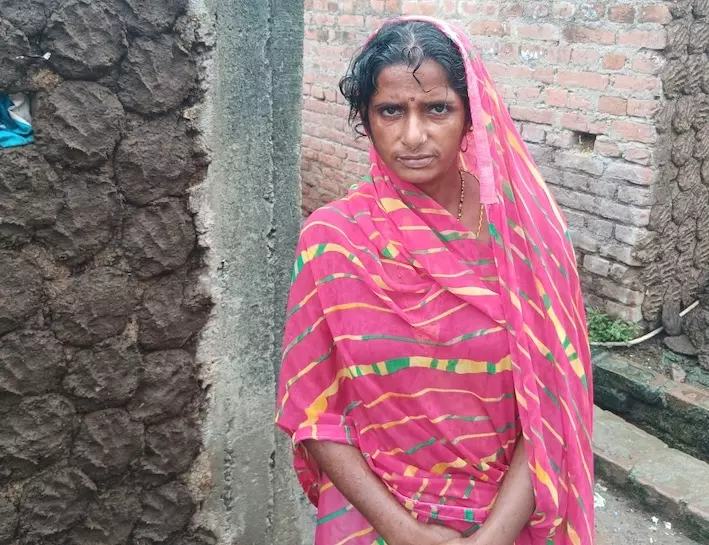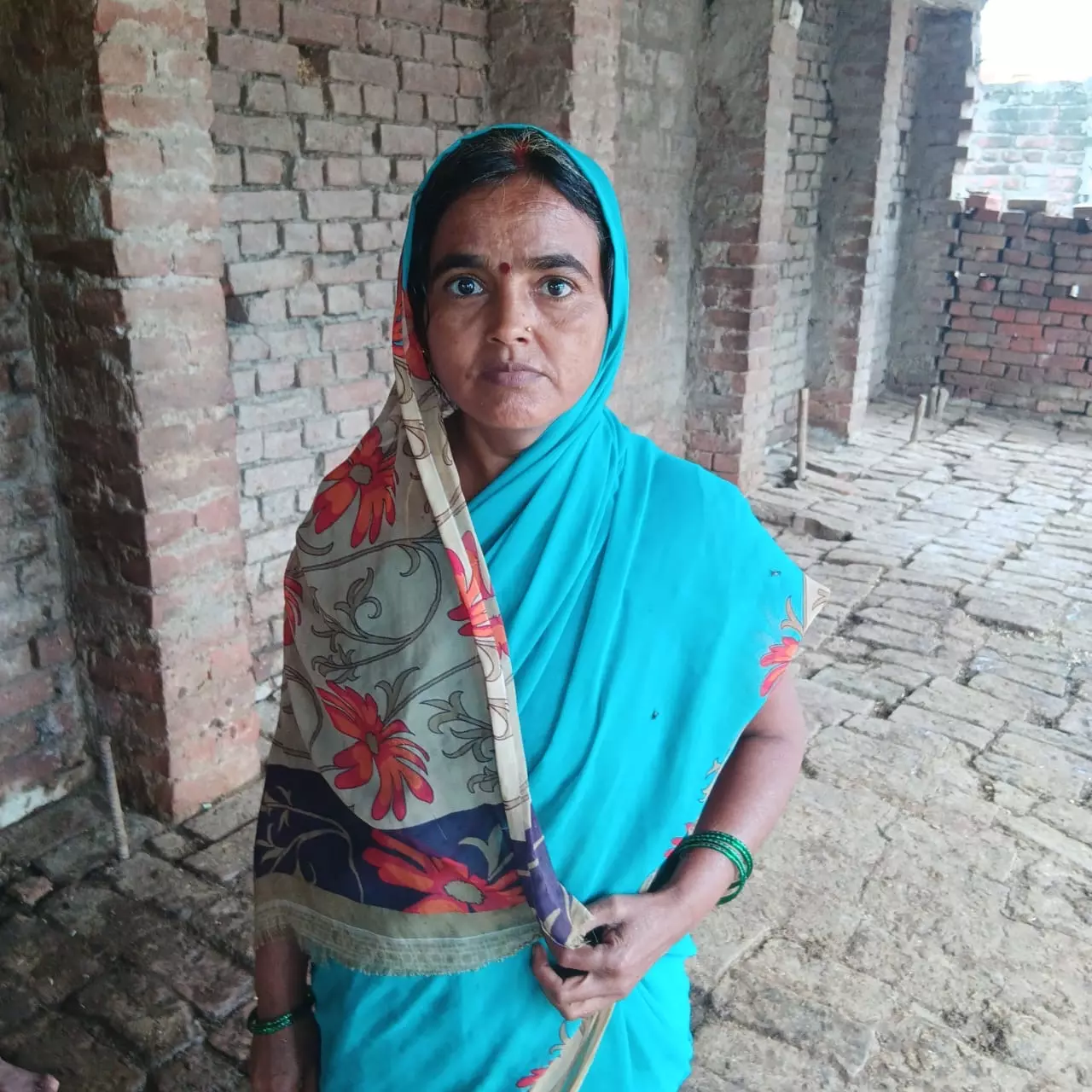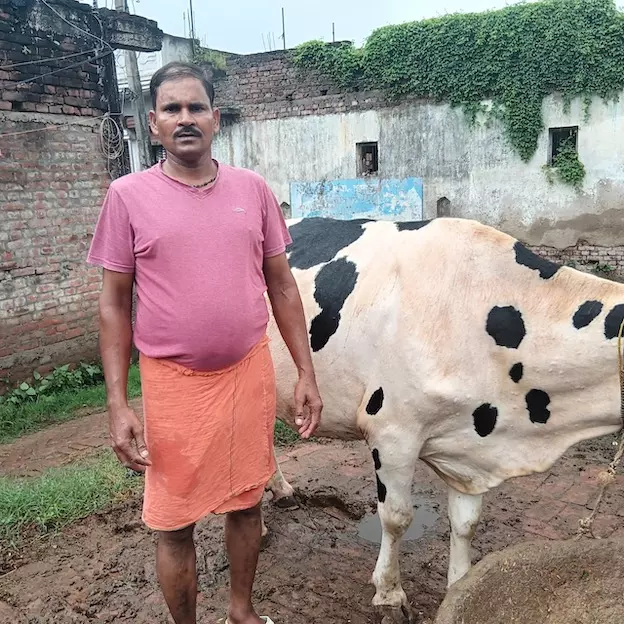
- Home
- India
- World
- Premium
- THE FEDERAL SPECIAL
- Analysis
- States
- Perspective
- Videos
- Sports
- Education
- Entertainment
- Elections
- Features
- Health
- Business
- Series
- In memoriam: Sheikh Mujibur Rahman
- Bishnoi's Men
- NEET TANGLE
- Economy Series
- Earth Day
- Kashmir’s Frozen Turbulence
- India@75
- The legend of Ramjanmabhoomi
- Liberalisation@30
- How to tame a dragon
- Celebrating biodiversity
- Farm Matters
- 50 days of solitude
- Bringing Migrants Home
- Budget 2020
- Jharkhand Votes
- The Federal Investigates
- The Federal Impact
- Vanishing Sand
- Gandhi @ 150
- Andhra Today
- Field report
- Operation Gulmarg
- Pandemic @1 Mn in India
- The Federal Year-End
- The Zero Year
- Science
- Brand studio
- Newsletter
- Elections 2024
- Events
‘Dead’ voters walking in Bihar, hundreds deleted from rolls in villages near Patna
From Phulwari Sharif to Araria, hundreds of living voters — largely poor, backward, and opposition-leaning — find their names deleted during SIR, Election Commission’s revision of electoral rolls ahead of polls

On a cloudy monsoon morning in the last week of August, Imarti Devi, in her late 50s, is busy brushing her teeth with a traditional datun (a neem twig) in a narrow lane outside her brick house. She appears cheerful and healthy. But, ironically, Imarti has been declared dead by the Election Commission of India (ECI) during the Special Intensive Revision (SIR) of the electoral...
On a cloudy monsoon morning in the last week of August, Imarti Devi, in her late 50s, is busy brushing her teeth with a traditional datun (a neem twig) in a narrow lane outside her brick house. She appears cheerful and healthy. But, ironically, Imarti has been declared dead by the Election Commission of India (ECI) during the Special Intensive Revision (SIR) of the electoral rolls in poll-bound Bihar.
Clad in a colourful floral-print sari, with a red bindi on her forehead and sindoor in her hair parting, Imarti, a resident of Dharaichak village situated near the embankment of the Punpun river under Phulwari Sharif block, about 15 km from central Patna, insists she is very much alive — “talking, laughing, walking, and eating.” Yet, in the ECI records, she is no longer among the living.
“What kind of government is this, that it declared me dead despite the fact that I am very much alive?” she asks in disbelief. “What can I say, except that I’ve heard there are many like me across the state. It was reported in Hindi dailies that several living people were declared dead and had their names deleted from the draft rolls.”
Imarti is an example of how a living voter can be declared dead, with her name deleted from the draft rolls after the completion of the first phase of the SIR. And she is not alone. “Till last week, I was just a village woman, unknown to outsiders. Thanks to the ECI, I am now in the limelight after it was found that I was declared dead in government records. But I am a simple woman; I only want my name in the voter list as alive, not dead,” says a smiling Imarti.
Merry Toppo, a 74-year-old former schoolteacher from Ara, is also alive but has been declared dead in the ECI’s draft voter list under the SIR. Even the names of her three sons were deleted. Another case is that of Shankar Chahan, who too has been wrongly marked dead. Similarly, in a village in Araria district, Meena Devi, Chandan Paswan, Ramdeo Paswan, and Mukesh Yadav are all alive but were declared dead in the draft list.
Imarti is one of more than 200 voters in Dharaichak and its hamlet Koeribigha whose names were deleted, often on dubious grounds. “My husband has filled a form again and submitted it to the local officials. It is the responsibility of the government to declare me alive now,” says Imarti.

Manju Devi's name was deleted on the false ground that she had shifted from Dharaichak.
She recalls that just last month she had also filled in the enumeration form with her photo and documents for the SIR, but the result shocked her. “When we came to know that my wife’s name was deleted and put under the dead list, it was beyond our imagination. How could someone alive be declared dead? We have informed the local Booth Level Officer (BLO) and even the MLA about this,” says Imarti’s husband, Vigan Prasad, a marginal farmer whose own name remains in the list.
He adds, “Who is accountable and responsible for this blunder? The ECI only makes tall claims, but the ground reality of the SIR is different. After my wife, who is alive and living with me, was declared dead — and with several villagers’ names also deleted from the voter list in Dharaichak alone — we have evidence that the opposition is right in calling it Vote Chori.”
Also read: Eviction drives in Assam’s Golaghat leave migrant Muslim families pushed to a corner
Mithoo Kumar, a young villager, took The Federal to the government-run primary school near the community temple in Dharaichak, where BLO Raju Choudhary had pasted the list of voters deleted from booths no. 83 and 84 of the village. The BLO informed that there are more than 1,200 voters across both booths. As per the list, the names of 214 voters — including 33 marked as dead — were deleted. Even Imarti Devi’s name figured in the “dead” list, while others were struck off on the grounds of being “shifted” or “absent.”
After a Supreme Court directive, the ECI recently published in the public domain the names of 65 lakh people removed from the draft electoral rolls as part of the SIR exercise in Bihar. The ECI categorised deletions under three heads: Absentee, Shifted, and Dead.
Take the case of Manju Devi. Her name was deleted on the false ground that she had shifted from Dharaichak. “I am living here, but my name was wrongly deleted from the voter list. I had voted in the 2024 Lok Sabha polls and the last assembly elections in 2020 as well,” says Manju.

Kavita Devi, a housewife, blames Prime Minister Narendra Modi for the deletions.
Manju’s husband, America Yadav, a farmer, says local officials asked him to submit a residential certificate to get her name re-included in the electoral roll. “When my name is in the voter list, my wife’s should be there too. But the BLO is demanding a residential certificate, which is not easy to obtain. I am still trying for it,” he says.
Ramu Prasad, in his early 30s, stood bare-chested, his head shaved as part of age-old Hindu mourning rituals for a deceased family member. He says both his name and his wife Amrita Devi’s name were removed without any intimation. “What is our crime? We are staying in our house, and both of us voted in the last polls,” he says.
Ramu, who works as a farm labourer to sustain his family throughout the year, owns only a small piece of land that is not enough to support them. He says, “I have no objection if the ECI deletes the names of dead voters. But it has deleted us, even though we are alive and have every right to vote. What times have come — ECI deleted us because we are poor, backward, and marginalised.”
Ramu’s neighbour, Akhileshwar Prasad, and his wife Kavita Devi, also found their names deleted. “Initially, when I heard that our names were struck off, it shocked us. It is wrong to delete our names despite us having filled the forms,” says Akhileshwar, a farmer who also supplies milk to homes and hotels to earn a livelihood.
Kavita, a housewife, does not hesitate to directly blame Prime Minister Narendra Modi for the deletions. “Our village is identified as a stronghold of the RJD because 99% of votes here are guaranteed for the lantern (RJD’s symbol). The BJP hardly gets any votes here. That may be the reason for the removal of so many names from the voter list. This village (Dharaichak) is dominated entirely by Yadavs, a powerful OBC caste. There are only two families from other castes — one from Barhi (carpenter caste) and another from Nai (barber caste). Why were only a few names deleted in neighbouring villages, but Dharaichak was targeted for caste equations?” she asks.

Kavita’s husband, Akhileshwar, says elections should be conducted with ballot papers instead of Electronic Voting Machines (EVMs).
Kavita also pointed to the filthy, muddy road outside her house in the middle of the village. “The government is more concerned with deleting voters’ names by spending crores. Why does it have no money to improve the drainage and lanes of the village?” “Yeh Modi ka kaam hai (This is Modi’s work),” says an outspoken Kavita. It seems the message of the ongoing Opposition-led ‘Voter Adhikar Yatra,’ led by Congress leader Rahul Gandhi, has reached the grassroots.
Kavita’s husband, Akhileshwar, supportsher view and says elections should be conducted with ballot papers instead of Electronic Voting Machines (EVMs). “The BJP, led by Modi, will manipulate EVMs and not allow the RJD to form the next government. The BJP is an expert in Vote Chori,” he says.
Also read: How West Bengal is pushing back against BJP’s Bangladeshi infiltration narrative
Kavita’s opinion is echoed by Rishu Kumar, a young student, who says his uncle’s name was also deleted. “It appears to be a deliberate act to remove the names of voters who are known to be loyal to parties other than the ruling BJP,” he says.
A group of villagers — old and young — sat in a verandah, taking shelter from a light shower. When asked how they viewed the deletions, they responded in one voice: it was part of Vote Chori. “Voters are being harassed, humiliated, and forced to produce proof that they are residents of this village,” one villager says.
The ruling NDA, led by Chief Minister Nitish Kumar, is already facing strong anti-incumbency and now grapples with public anger over the ECI’s SIR exercise of revising electoral rolls. The prevailing sentiment on the ground is against the NDA, with allegations of Vote Chori and widespread resentment over voter deletions likely to make the alliance’s task more difficult in the upcoming polls.
The Opposition has been fighting tooth and nail against the SIR, calling it a ploy by the BJP-led Centre, through the ECI, to disenfranchise millions of voters. Adding to these fears are allegations of numerous irregularities in the exercise — improper submission of forms, concerns over the ECI’s exclusion of documents such as Aadhaar, voter ID, PAN, and ration cards as valid proofs, the tight timelines, and mass deletions of voters.